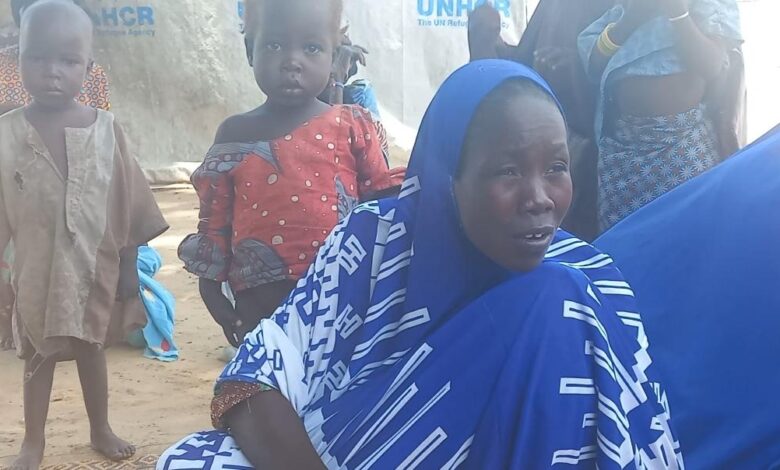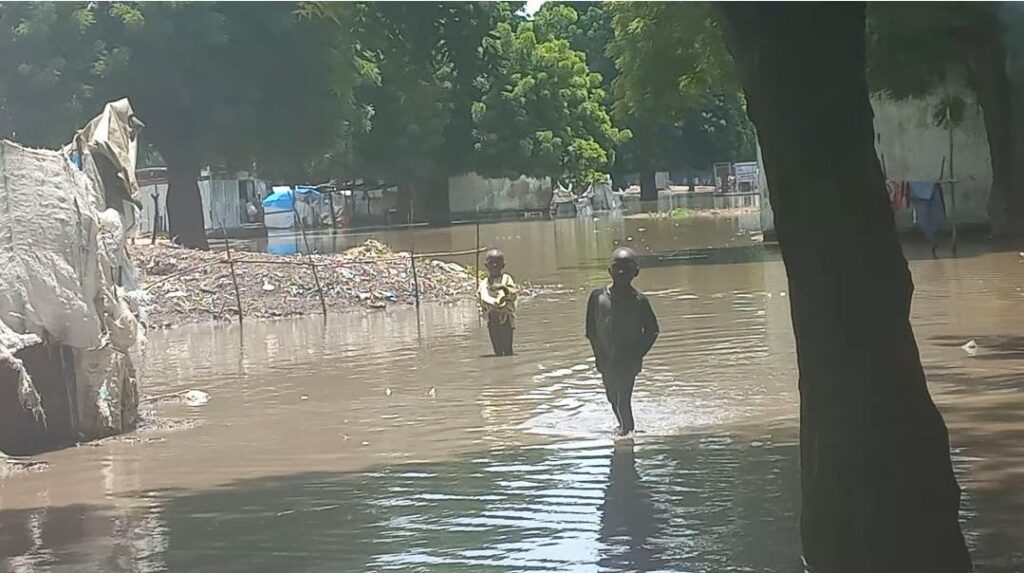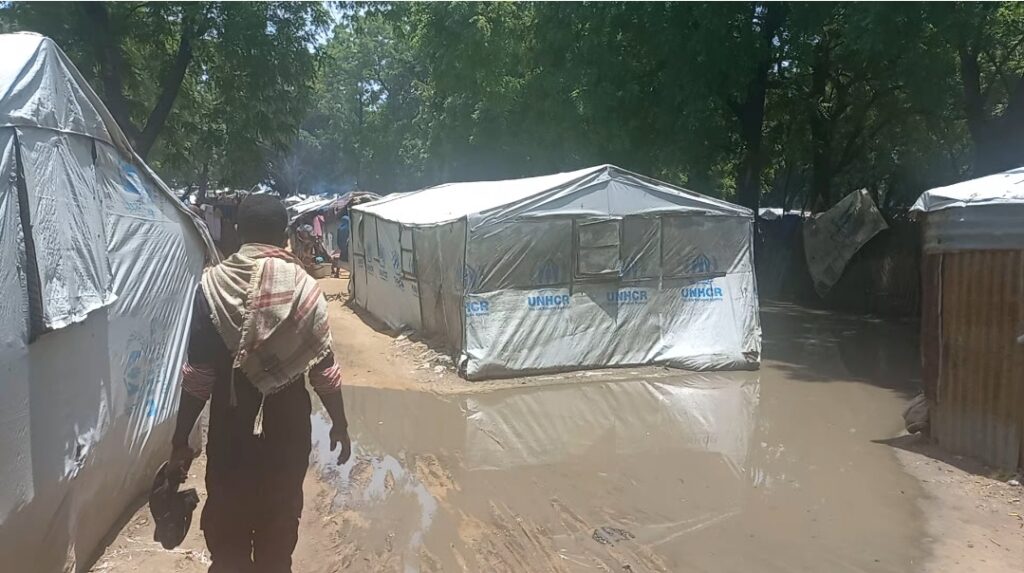The Women Whose Husbands Were Arrested and ‘Disappeared’
In Bama IDP camp, Borno State, many women are living as single mothers and heads of their households because their husbands were either killed by non-state actors and soldiers or detained in unknown facilities as terrorism suspects.

Yagana Kamsulum has not stopped hoping her husband will return to her, three years after he disappeared. Modu Kamsulum was arrested by soldiers while he was working on his farm. This was days after non-state actors had attacked their community.
But unlike the military, Yagana believes her husband is an innocent man.
Displaced with her six children, Yagana lives in the Bama Internally Displaced Persons (IDP) camp, one of the many temporary homes for people like her strewn across Borno State, Northeast Nigeria – a result of years of Boko Haram insurgency. For the past three years since non-state actors attacked Wazaram, her community near Bama in the central part of the state, this is where they have sought shelter.
She is not alone
Many married women in various IDP camps within Borno State are living half of their lives as widows because their husbands have gone missing for many years and they have no idea if they are dead or alive. So, most of the women are left to fend for themselves and their children, all alone.
A majority of such women say they have no idea where their spouses were taken to years after soldiers of the Nigerian military arrested them for alleged complicity with non-state actors. Some, on the other hand, who have some knowledge of where their husbands are, do not have access to them.

Seated with others on a plastic mat spread under a neem tree outside her makeshift tent, Yagana seemed withdrawn from the chatting around her. She occasionally looked out for her children who were frolicking around the wet neighbourhood.
About 50 metres from where they were seated children defecate in a pool of receding water that still engulfs most of the public toilets allocated to their IDP camp.
Some days earlier, the flood had reached the front of their tents, the IDPs told HumAngle. But the way it appeared, neither the flooded toilets nor the threat to public health were the major worry of these inmates, especially the women.
“Ninety per cent of the women you see in this neighbourhood of the camp are living here as single mothers whose husbands are either killed or arrested by the military as Boko Haram suspects,” said Ba’mala Kalaama, a 65-year-old man who had fled from Ruwaza village in Bama LGA.
Yagana, Kalaamal and many others in the camp are natives of Mandara, a language spoken by locals around Bama and Gwoza LGAs. HumAngle learnt that there are a large number of women and children who live in the camp without their husbands because the latter were killed or disappeared after being arrested by the military as potential suspects.

“Our major problem as mothers here in this part of the camp is that we have no husbands to help us take care of our children,” she said.
“The military took away my husband while he was working on our farm in our village about three years ago, on accusations that he was a sympathiser of Boko Haram. I know my husband, the father of my children, was wrongly arrested.
“It has been over three years since this happened, and I was told he is somewhere in Giwa barracks in Maiduguri. He was not a Boko Haram, I know him. He is my husband.”
They want to Leave the camp
Yagana and many other single mothers said they are tired of the constrained camp life. Even with the absence of their husbands, they simply wish they could return home and live normal lives once again.
The women said they depend on occasional support from NGOs and sometimes venture into the bush to fetch firewood for sale or do menial jobs in the township to make ends meet.
“Life here is difficult,” Yagana said. “We don’t have food, there is no water here. We have no decent clothing for ourselves and the children. We just want to go back home to the farm and produce food to feed our children. Being here and living as beggars is not good for us. We never knew we would stay here for this long. We came from Ruwaza, a village not far from Bama town.
“We don’t have good toilets here; we sometimes spend hours queuing to use the toilets. And if one has stomach upset, you end up letting it go on your body.
“This kills my spirit daily and I wish my husband would return to take us back home.”
Today, Yagana’s village, Ruwaza, is about 15 km east of Bama, along the road to Gulumba town, and it is said to be under the control of non-state actors.
Support Our Journalism
There are millions of ordinary people affected by conflict in Africa whose stories are missing in the mainstream media. HumAngle is determined to tell those challenging and under-reported stories, hoping that the people impacted by these conflicts will find the safety and security they deserve.
To ensure that we continue to provide public service coverage, we have a small favour to ask you. We want you to be part of our journalistic endeavour by contributing a token to us.
Your donation will further promote a robust, free, and independent media.
Donate HereStay Closer To The Stories That Matter




